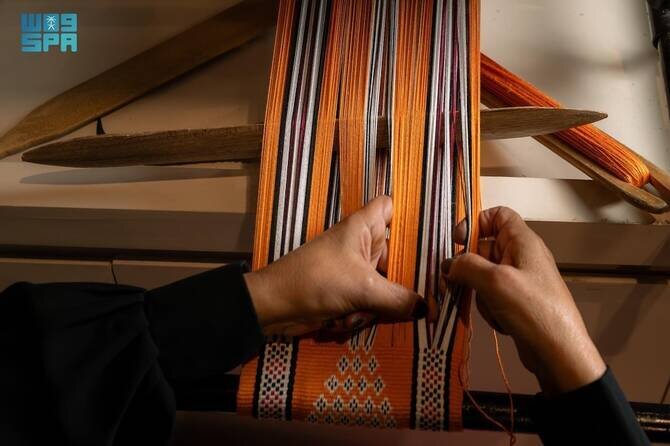
Saudi Arabia’s Handicrafts Sector Transforms into Economic Powerhouse
The handicraft sector in Saudi Arabia has grown to become a significant economic force, driven by institutional vision and national efforts.
Riyadh: The handicrafts sector in Saudi Arabia is experiencing remarkable growth as it transitions from a cultural heritage preservation activity to an essential economic driver.
This transformation is largely supported by the strategic initiatives of the Heritage Commission, according to reports from the Saudi Press Agency (SPA).The market for handicrafts in the Kingdom is valued at approximately $405 million, with a notable statistic showing that local products currently account for only 20 percent of this total value.
These figures suggest vast opportunities for artisans and entrepreneurs looking to engage within the sector, emphasizing the need for innovative and high-quality craftsmanship from Saudi projects.The shift towards recognizing the economic potential of handicrafts is prominently featured at the Saudi International Handicrafts Week, known as Banan.
This event serves as a pivotal platform for both Saudi and international handicraft innovation and is aligned with the national effort to support artisans economically and culturally.
Organized by the Heritage Commission, Banan runs through November 26 and aims to highlight traditional crafts not only as functional items but also as expressions of cultural heritage and national identity.During the exhibition, attendees witness a diverse range of displays from artisans presenting their work for the first time, emerging projects seeking commercial success, to innovative products developed in small workshops that have become significant economic entities.
A notable aspect of Banan is its dedicated space allocated to entrepreneurs, enhancing visibility for small-scale handicraft initiatives and fostering connections between project creators and potential investors.Many participants at the event highlighted the platform’s role in allowing them to test and refine their products for both local and international markets.
This initiative aligns with the commission's broader efforts to establish an integrated ecosystem through training programs, craft documentation, and improved marketing access for artisans.
This transformation is largely supported by the strategic initiatives of the Heritage Commission, according to reports from the Saudi Press Agency (SPA).The market for handicrafts in the Kingdom is valued at approximately $405 million, with a notable statistic showing that local products currently account for only 20 percent of this total value.
These figures suggest vast opportunities for artisans and entrepreneurs looking to engage within the sector, emphasizing the need for innovative and high-quality craftsmanship from Saudi projects.The shift towards recognizing the economic potential of handicrafts is prominently featured at the Saudi International Handicrafts Week, known as Banan.
This event serves as a pivotal platform for both Saudi and international handicraft innovation and is aligned with the national effort to support artisans economically and culturally.
Organized by the Heritage Commission, Banan runs through November 26 and aims to highlight traditional crafts not only as functional items but also as expressions of cultural heritage and national identity.During the exhibition, attendees witness a diverse range of displays from artisans presenting their work for the first time, emerging projects seeking commercial success, to innovative products developed in small workshops that have become significant economic entities.
A notable aspect of Banan is its dedicated space allocated to entrepreneurs, enhancing visibility for small-scale handicraft initiatives and fostering connections between project creators and potential investors.Many participants at the event highlighted the platform’s role in allowing them to test and refine their products for both local and international markets.
This initiative aligns with the commission's broader efforts to establish an integrated ecosystem through training programs, craft documentation, and improved marketing access for artisans.










